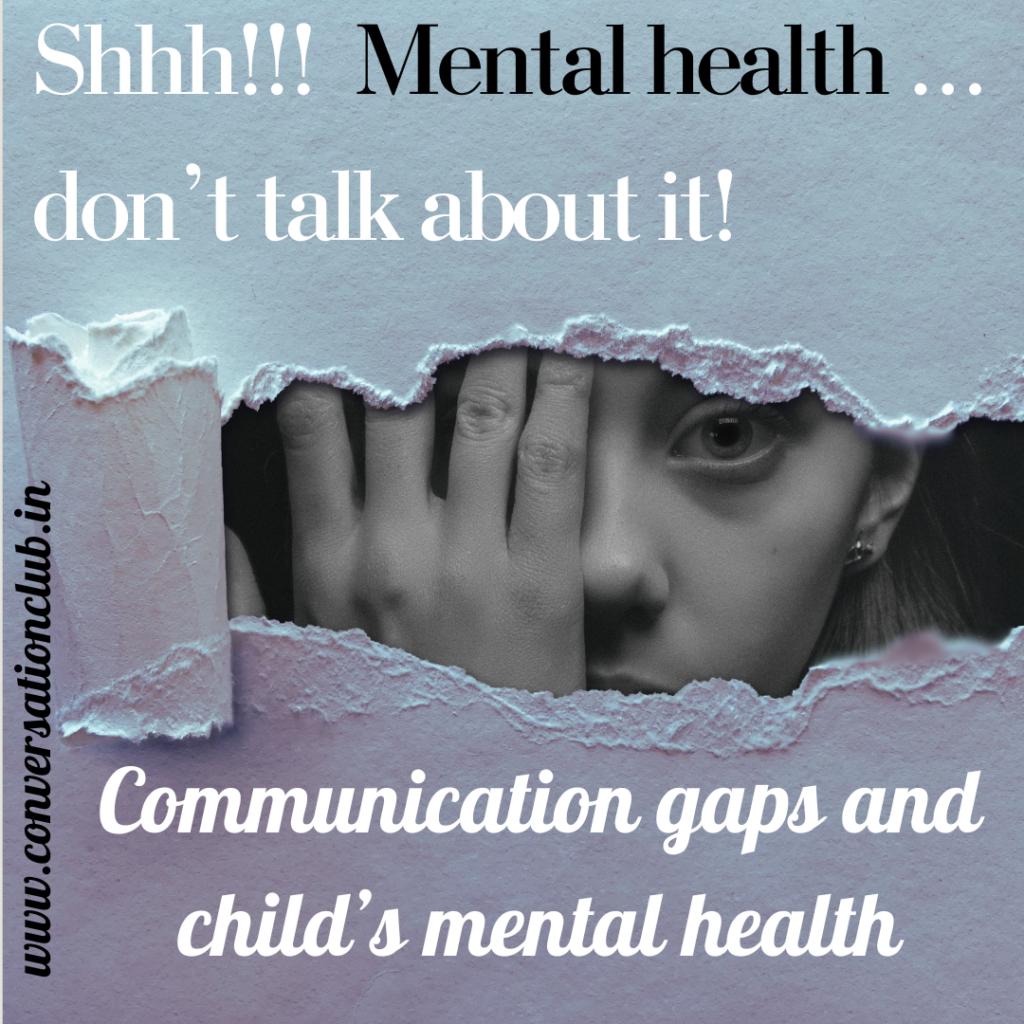Communication gaps and child’s mental health
If your child had a cold, you’d look for the right syrup in your medicine cabinet. If the kid hurt his knee, you’d fetch cotton and Dettol to clean up the wound. If there are lice in your child’s hair, you’ll search and buy the suitable anti lice kit. However, if the kid has trouble expressing himself or if the child is not able to understand in school or talk freely with people around her, the reaction is to either ignore the problem or scare them into performing better.
Why do we Indian parents have such a hard time dealing with mental problems? Why is it that instead of helping our children through these difficult times, we abandon them because of our own irrational prejudices?
The stigma associated with mental health
Stigma Meaning – A mark of shame!!!
My child cannot be sick!!! Do you ever say this to a doctor if your child is running a fever??
No … you instead look for the best doctor and avail the most suited medication for treatment. However, when it comes to problems related to their social, emotional or psychological well–being, it is all a hushed – hushed topic.
This lack of understanding, compassion and communication makes the problem even bigger than it has to be.
Mental health of children and young adults
Psychological issues do not mean that the person is mad and needs to be institutionalized or disbarred from society. They have varying impacts and in the majority of the cases, the impact isn’t severe. In fact, if treated well in time and dealt with cautiously, the symptoms can be managed and the issues can be gradually minimalized.
Communication & social skills of children suffering from mental health challenges
The communication gap is the biggest challenge when it comes to diagnosing & treating children and young adults. On account of the stigma attached with the problem, a large majority of kids facing these issues aren’t even diagnosed properly. Parents are too worried about their societal image and thus instead of assimilating the essence of the problem, they resort to evasion tactics. The desire to ignore and hide the problem allows the poison to spread.
Even the children themselves are scared of this ignorant public outlook and thus find it unsafe to share their problems with anybody. Their silence takes different forms – some face anxiety and depression, while others opt for a more stubborn approach, where they end up hurting themselves and others around them.
Foster an environment of empathy and acceptance
We the parents, educators and the community have to be more accepting. We are all mature adults here and it is imperative that we be more caring and empathetic towards the problems these children and young adults are facing. Mental health discussions aren’t and shouldn’t be considered taboo. As a society, we ought to grow and that shall only happen when we promote life driven by open conversations regarding all fields including mental health in children and adults.


Add a Comment